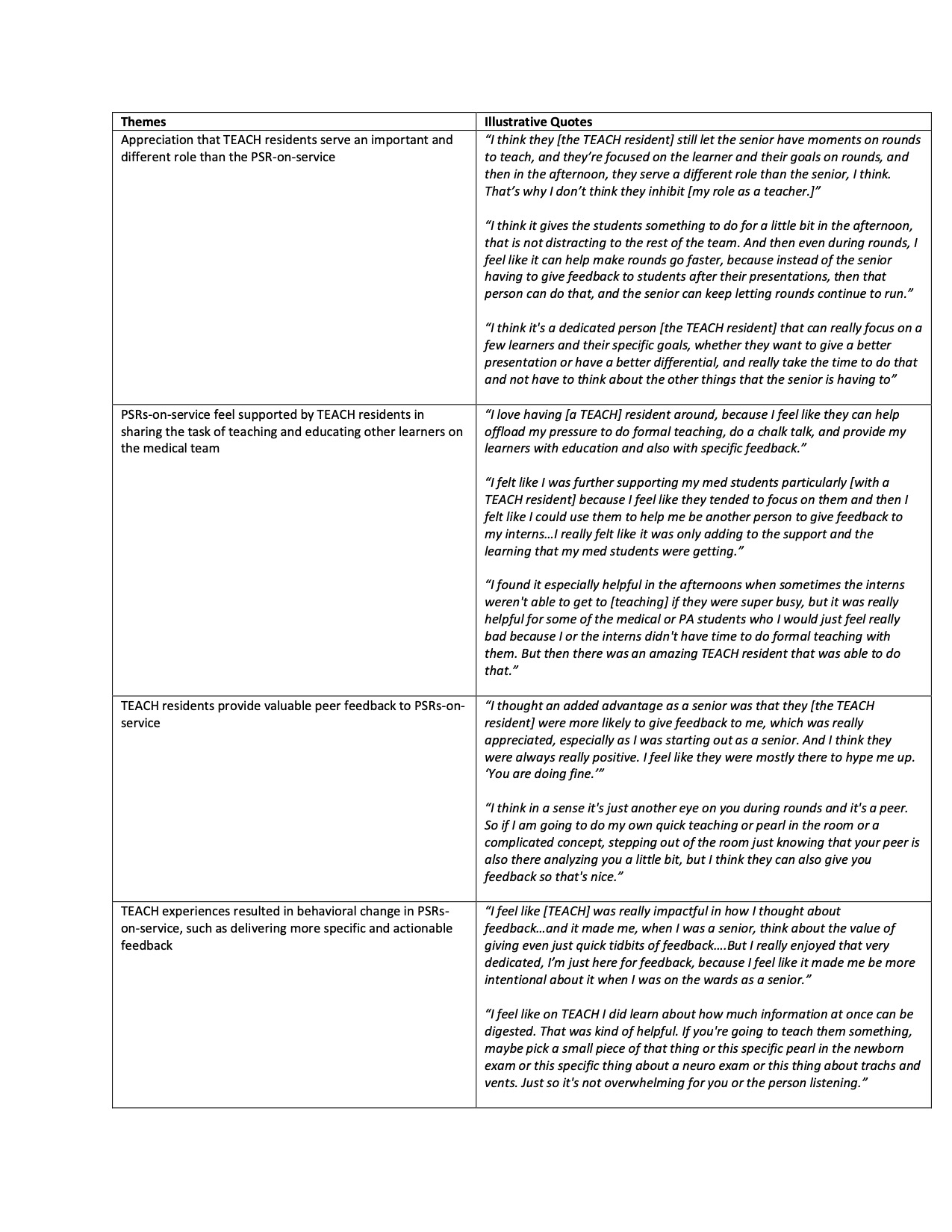Medical Education
Session: Medical Education 5
415 - The Impact of a Residents-as-Teachers Elective on Pediatric Senior Residents-on-Service
Saturday, May 4, 2024
3:30 PM - 6:00 PM ET
Poster Number: 415
Publication Number: 415.1127
Publication Number: 415.1127
- SB
Shweta Bhatia, MD (she/her/hers)
Resident
University of Colorado School of Medicine
Denver, Colorado, United States
Presenting Author(s)
Background: The ACGME requires residents to become “effective teachers,” however patient care and other requirements can hinder the practice of teaching skills. After a local needs assessment confirmed the need for a dedicated teaching elective, we created Teaching Elective At Children’s Hospital (TEACH) to provide protected time for senior residents to hone their educator skills. Resident perspectives of how TEACH and a teaching resident may affect residents serving as the pediatric senior resident (PSR) on clinical service remain unclear.
Objective: To evaluate the impact of a resident teaching elective on the PSR’s role on hospital medicine teams through qualitative methodology
Design/Methods: Informed by deliberate practice as a conceptual framework and using Kern’s Six-Step Approach, we developed TEACH, a 2- to 4-week curriculum and implemented it on hospital medicine services in 2019. As part of the elective, TEACH residents directly observe and give feedback to learners as well as lead small group teaching. We conducted focus groups with pediatric residents (PGY2-4s) using a semi-structed interview guide asking about their experiences with TEACH residents while serving as PSRs on hospital medicine services (“PSRs-on-service”). Interviews were recorded and professionally transcribed. Four investigators (two residents and two faculty) coded the data individually, as pairs, and as a group using the constant comparative method until consensus of themes was obtained.
Results: We completed five focus groups with ten residents from November 2022 to October 2023; four residents had participated in TEACH. Qualitative analysis revealed themes describing PSR perspectives of TEACH residents while on service (Table 1). PSRs-on-service reported TEACH residents served an important, different role from team leader with a focus on learners and not patients. PSRs-on-service felt greatly supported by TEACH residents as TEACH residents shared in the tasks of teaching and delivering feedback to others. PSRs-on-service also shared TEACH residents provided valuable peer feedback. Notably, those who had participated in TEACH reported the elective improved their own teaching skills as PSRs-on-services.
Conclusion(s): TEACH residents were perceived by PSRs-on-service as overwhelmingly helpful to the team. Additionally, PSRs-on-service found that they were able to incorporate their experiences from TEACH into current practice. Next steps include expanding TEACH to other clinical services to potentially benefit more PSRs and evaluating its efficacy through additional focus groups.

